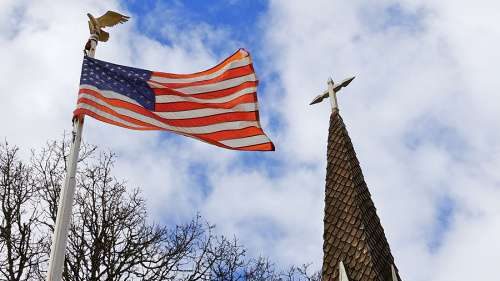Three Southern California ecclesial communities have filed a lawsuit against Governor Gavin Newsom, alleging that social distancing orders he imposed amid COVID-19 violate their first amendment right to freedom of religion.
Newsom imposed a stay-at-home order for the state March 19, mandating that nonessential businesses close their doors and restricting gatherings. Newsom’s order does not list houses of worship as “essential.”
The Center for American Liberty, a California-based nonprofit, filed the suit April 13 in the United States District Court for the Central District of California. State Attorney General Xavier Becerra, as well as officials of San Bernardino and Riverside counties who imposed additional stay-at-home orders, are also named in the suit.
“If a Californian is able to go to Costco or the local marijuana shop or liquor store and buy goods in a responsible, socially distanced manner, then he or she must be allowed to practice their faith using the same precautions,” Harmeet Dhillon, chief executive of the Center for American Liberty, said in an April 13 statement.
The churches involved in the suit include Church Unlimited, a church located in Riverside county, whose pastor received a $1,000 fine for holding a Palm Sunday service.
The head pastor of Shield of Faith Family Church in San Bernardino county and the senior pastor of Word of Life Ministries International in Riverside county also are involved in the suit.
The churches argue that the state and local orders are overly broad, and that they can practice safe social distancing in the same manner as grocery stores and other businesses considered essential, the Associated Press reports.
San Bernardino county’s April 7 stay-at-home order mandated that faith-based services “must be electronic only through streaming or online technology,” adding that people may not leave their homes for “driving parades or drive-up services or to pick up non-essential items such as pre-packaged Easter eggs or bags filled with candy and toys at a drive-thru location.”
Riverside county’s order, imposed April 10, allowed for drive-up church services the weekend of Easter, but mandated that such activities would be prohibited after Easter Sunday.
On Friday, a federal judge refused to allow a small church in Campo, Abiding Place Ministries, to gather for Easter Sunday services, the AP reports.
As the COVID-19 pandemic has spread in the U.S., state and local governments have enacted various restrictions on public activities and gatherings.
Some officials have curtailed public religious services entirely and threatened serious consequences for churches which do not comply.
New York City mayor Bill DeBlasio threatened to close down churches and synagogues permanently if they still held public services. Kentucky Governor Andy Beshear (D) said state police would record the license plate numbers of attendees of large religious services over Easter, with local health officials requiring them to self-quarantine for 14 days afterward. Virginia Governor Ralph Northam (D) criminalized certain public gatherings of 10 or more people, which included religious gatherings.
In Kansas, Governor Laura Kelly (D) initially exempted religious services from the state’s limitation of public gatherings to no more than 10 people, but then included religious services in the regulations.
Local authorities on April 8 fined attendees at a drive-in service at a Baptist church in Greenville, Mississippi, prompting the Department of Justice to file a statement of interest on Tuesday in support of the church.
Attorney General William Barr issued a statement April 14 “on religious practice and social distancing” where he clarified that governments cannot put special burdens on religious practice that they do not also impose upon other activities.
“For example, if a government allows movie theaters, restaurants, concert halls, and other comparable places of assembly to remain open and unrestricted, it may not order houses of worship to close, limit their congregation size, or otherwise impede religious gatherings,” Barr said.
“Religious institutions must not be singled out for special burdens.”

